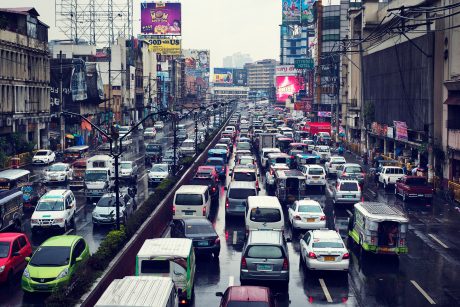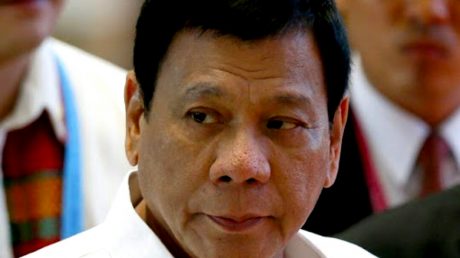
Philippine President Rodrigo Duterte’s critics are getting impatient. “Where is the change that he promised?” they ask. After a year in office, his fiercest critics are reminding him of the promises he made before the election. For instance, they cite his promise to end criminality within three to six months after election. It’s quite laughable to see them ask that actually. Were they really expecting Duterte to totally eliminate crime within three to six months? I think only a fool would believe someone who promises something unrealistic. Duterte’s supporters know the problem cannot be solved within a short time frame. But what they like about him is his resolve to solve them.
First of all, most of the people who are expecting him to “stop criminality within three to six months” are the same people who ignored the fact that the crime rate in the Philippines kept going up during former President BS Aquino’s term. Yes, BS Aquino’s supporters turned a blind eye to criminality particularly the ones committed by his own cabinet secretaries. Now they can’t stop highlighting the crimes in the country including the ones that have already existed for decades. An example are the incidences of drive by shootings. They make it appear as if there were no drive by shootings until Duterte started his term. Never mind that assassins on motorbikes were already in vogue for years especially in the previous years prior to Duterte winning the Presidency. The Inquirer even published an article mentioning a police report stating that “’Riding in tandem’ motorcyclists committed over 3,000 crimes in Metro Manila in 2013”.
Duterte’s critics also cite that there is no improvement in the horrendous traffic conditions in Metro Manila and commuters using the Metro Rail Transit still have to endure long queues plus long delays in transit time going from point A to B. They mention all these as if the solution to them can be implemented within a few months. Each of these issues have very complex problems that were made worse by the previous cabinet members under BS Aquino. As mentioned before, it was the previous Department of Communication and Transportation Secretary Jun Abaya who messed up. He allegedly entered into a dodgy contract worth P3.8 billion with a Chinese firm for the supply of coaches to the MRT. Abaya is in fact, being sued for mismanagement of the MRT by anti-corrupt groups Anti-Trapo Movement of the Philippines (ATM), Liga ng Eksplosibong Pagbabago (LEP) and United Filipino Consumers and Commuters (UFCC):
The complaint stemmed from the DOTC’s awarding of contract amounting P3.769,382,400 to Dalian Locomotive and Rolling Stock Co. Ltd. in January 2014 for the supply of 48 coaches to MRT 3.“Dalian miserably failed to deliver what were required in the Contract, thereby causing undue injury to the Filipino people and the government. The non-operational Dalian-made coaches likewise resulted in lost farebox revenues amounting to millions of pesos,” the complaint read.The complainants said that while all the 48 coaches were already delivered early this year none of them was operational.The complainants also said the delivered coaches were not equipped with any signaling system despite the technical specifications provision of the contract stating that all the coaches should be equipped with automatic train protection (ATP) signals.
With that information, surely Duterte’s critics should understand that it will take a while before the mess Abaya left behind gets sorted. Unfortunately, they refuse to acknowledge the root of the problem.
With regard to the traffic in Metro Manila, it will not improve unless some private roads in posh villages that can serve as alternate route are opened to motorists. The Duterte government cannot do much about that especially since most of the elite members of Philippine society live in those enclaves and would be up in arms if the roads are opened to the public. They prefer that their little havens away from the masses remain heavenly. This and other challenges will remain formidable until, of course, Congress gives Duterte emergency powers to fix things. But we all know that a lot of the congressmen are also part of the rich and would never dream of allowing the people they supposedly serve to drive by their mansions.
At the moment, motorists have very few options to choose from. EDSA turns into a parking lot at various times during the day. During those times, vehicles hardly move for hours. So since the public accepts that roads in exclusive villages are off limits, they will not complain or even think about the possibility of using those roads to ease traffic congestion on Manila’s roads. This situation is actually telling of how submissive Filipinos are to the elite. In a truly egalitarian society, the roads would be open to all motorists. Roads inaccessible to the general public would be unthinkable in Western societies. Governments in progressive societies would priorities the welfare of the majority before the minority. But that is not the case in the Philippines.
I have always said that the problem with the Philippines has less to do with the tyranny of the few, but more to do with the tyranny of the majority – those who give power to the few members of the elite or oligarchy. What I am trying to say is, the Filipino people need to find their strength. They do not realise that they can demand that the government compel the elite to do something. Private villages should be compelled to open up private roads to ease the traffic conditions on main roads, for instance.

Duterte’s critics also blame him for the chaos in Marawi City, Mindanao. They think it is Duterte’s fault that there is now war in the city. They even contradict themselves. While they say it wasn’t necessary for Duterte to declare Martial Law in Mindanao, they think that he could have prevented the rise of ISIS in the region. Never mind that BS Aquino failed to act on the intelligence report that the Maute brothers — Omarkhayam and Abdullah — were already a threat during his term. Duterte’s critics do not even laud the military for capturing both brothers and their parents who are the heart of the organisation. They were caught in different cities in Mindanao, which justifies extending Martial Law across the region.
The American publication The New York Times, quite bafflingly, also joined the chorus of critics by saying Duterte’s “braggadocio” is to blame for the chaos in Marawi City. A President has to do what he has to do for his country. He relies on military information in deciding when and where to strike. Considering the editors of the New York Times are not privy to sensitive military intel, they have a lot of nerve stating that “braggadocio” is to blame for what is happening in a city thousands of miles away from them. The New York Times editor could have sent someone to dig deeper and further into how and why terrorism festered in the Philippines. They would have trace it to BS Aquino’s neglect. Speaking of “braggadocio”, It would have been fair for The New York Times to use the term to describe other leaders like George W Bush, Barrack Obama, Tony Blair, et al for their foreign policies in Iraq and Afghanistan.
Those who ask “where is the change”? have to ask themselves the same question. Have they changed? Have they started following the road rules and stopped being nuisances on the road themselves? Have they stopped throwing garbage indiscriminately when they are out and about? Have they started caring about their neighbours? As the saying goes, it takes a village to raise a child. Filipinos cannot keep relying on the police to solve everything. The police also need everyone’s cooperation to keep things in order. Filipinos should stop acting like unruly children when authorities are not around. Filipinos should learn to behave even when the police are not in sight.
Filipinos cannot expect Duterte to perform miracles. They need to do their part in helping the government. They can’t just criticise for the sake of criticising. Clearly, some of Duterte’s critics just hate him and want him out. They don’t care if a transition to another leader would set back the Philippines again. They don’t care that Duterte was elected and was chosen by the Filipino voter. A lot of Duterte’s critics just care about their own agendas – which is to get back in power. To quote senator JV Ejercito: On the contrary instead of helping the government achieve its goals, there are some who are hoping that the admin fails.
Yes, a lot of those who ask “where is the change” are part of the reason change is slow. They are a hindrance to Philippine society reaching its full potential. They do not want to change the status quo because they benefit from it. They do not have the right to ask “where is the change?”

No comments:
Post a Comment